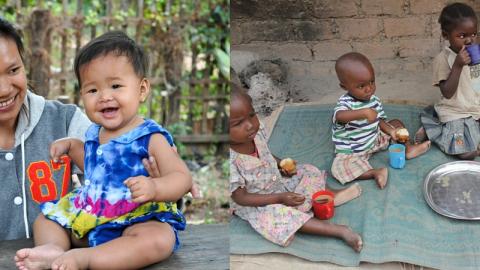
About BabyWASH
What is BabyWASH?
BabyWASH aims to integrate water, sanitation and hygiene (WASH) into maternal, newborn and child health (MNCH), early childhood development (ECD) and nutrition, to have a more profound impact on child health outcomes in the first 1,000 days of life. Key interventions focus on hotspots in the first 1,000 days, including pregnancy, delivery, the first month of life, the onset of complementary feeding, and the onset of a child’s mobility.
Why BabyWASH?
In our world, 159 million children under 5 face stunted growth in which poor hygiene and sanitation causes about 15% of that stunting. 45% of all child deaths are due to undernutrition and 50% of underweight status in children is due to poor water, sanitiation and hygiene.
WASH interventions during child birth have been shown to aid overall recovery and reduce maternal and newborn mortality, sepsis, and tetanus. Also, current and emerging research supports the theory of environmental enteric dysfunction(EED), a condition caused by poor hygiene that leads to chronic inflammation and low nutrient absorption. The microbiome, linear growth trajectory, cognitive, sensorimotor, and socioemotional brain pathways are all determined prior to age three. The effects of poor hygiene during the first 1,000 days of life can determine whether or not a child will reach his or her developmental potential.
Implementing more integrated programmes in support of BabyWASH has the potential to:
- Save 31,000 mothers and 420,000 babies each year through more hygienic birth practices. (WHO 2014)
- Reduce the 45% of child deaths each year linked to malnutrition. (WHO 2016)
- Reduce undernutrition associated with unsafe water, inadequate sanitation, or insufficient hygiene. (DFID Evidence Paper 2016)
- Reduce diarrhoea rates by 30-40% through proven hygiene practices. (WHO 2014)
- Reduce risk of neonatal mortality by 44% by early initiation of breastfeeding. (Lancet 2014)
- Increase multi-sectoral ownership of ECD to impact reduction of the 200 million children under five globally who do not reach their full developmental potential due to environmental conditions associated with poverty, malnutrition and poor health. (Lancet 2013)

